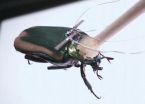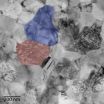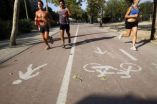(Press-News.org) How will the terrorist attacks in Norway on 22 July change the country? That question has been put to three social scientists at the University of Stavanger (UiS).
"Norwegians are still in a state of shock," says professor Odd Einar Olsen. "These incidents were so extensive and gruesome that people need time to come to terms with them."
He is very interested to see what content Norway will give to promises made about more openness and democracy after the car-bombing in Oslo and the massacre at Utøya north of the capital.
"While people have united in sorrow, a crippling consensus has emerged that certain subjects can't be discussed. That's a sinister development which could undermine necessary criticism."
To illustrate his case, Prof Olsen points to the debate on the data storage directive, a security measure adopted earlier in Norway this year.
"If this discussion had arisen now, it would have been conducted very differently," he maintains. "Opponents would have been much more cautious and unassertive."
He regards that as a major challenge for the future, and fears that the trend will be towards an extension of over-exaggerated surveillance and many additional security measures.
"The media picture is characterised by calls for 'something to be done', and an expansion in security is the response," Prof Olsen notes.
"It's frightening to read articles shrieking for more sharpshooters and special forces with a 'licence to kill'.
"The danger with the crippling consensus is that nobody dares to question what's happening. Society will be transformed. Slowly but surely, we're shifting towards a security regime characterised by intelligence gathering and surveillance."
No greater threat
He is backed by fellow professor Ole Andreas Engen and postdoctoral researcher Bjørn Ivar Kruke, who say the terrorist threat in Norway is no greater than it was before 22 July.
"Although it might seem insensitive and arrogant to say so, little has actually changed after the attacks in Oslo and on Utøya," says Prof Engen.
New measures should therefore be as limited as possible, he argues. Norway has what it needs to guard against threats, in so far as protection from "the unthinkable" is attainable.
The terrorist attacks in the USA on 11 September 2001 were followed by a number of security measures in Norway at such locations as airports, ports and embassies. New anti-terror legislation was also adopted by the country, with increased powers extended to the police and defence forces.
"The attacks on the government buildings in Oslo and the youth camp on Utøya put our emergency response to the test," Dr Kruke adds.
"With hindsight, you can naturally discuss whether the contingency plans were good enough. We must learn from these incidents. New measures must be based on a detailed analysis of the response, and not on ad-hoc action which could quickly create a false sense of security", he says.
"Very clear lines of command and systems are now in place. Within these frameworks, much improvement is naturally possible. The challenge is to get the systems to work well together."
The UiS researchers believe that the police, the police security service (PST) and the Ministry of Justice will have much to answer for in the time to come.
Recurring questions are likely to be security in the government quarter, use of resources in the PST, the police response to the Utøya shootings and security at Utøya Camping.
"However, nothing ever goes smoothly in a crisis," observes Prof Olsen. "That's in the nature of an emergency. But you can discuss whether the failures were serious or to be expected."
In his view, the cost of maintaining full emergency preparedness nationwide and around the clock would be exorbitantly high.
The need for security
"People naturally need to feel secure, but the chance of terrorism in Norway is actually very small," he adds. "Statistically, we should fear cancer, cardiovascular diseases and road accidents."
Asked what Norway should do now, Prof Engen calls for a debate on what societal safety is and should be. "That's a question of the kind of society we want."
He says it will only be possible to say whether the terrorist attacks will change Norway positively or negatively once the commission of inquiry has reported and measures are proposed.
In his view, the 2000 report from Norway's commission on the vulnerability of society could provide an important basis for such a debate. It remains the only official document to analyse systematically how vulnerable the Norwegian community is.
But Prof Olsen does not think that a proposal in the report to concentrate resources in a separate ministry of homeland security would be the best solution.
"That solution would also represent a concentration of power which could ultimately undermine security. Everyone thinking the same way constitutes a danger".
"We need several organisations with different perspectives on what's dangerous and what should be done."
"In addition to a general debate, we need a further assessment of any measures the 22 July commission will propose," says Prof Engen, and is backed by Dr Kruke and Prof Olsen.
"If we're going to learn from these attacks, we need something more than this commission will be able to manage," he adds.
The trio believe that the inquiry team's composition indicates that its work could be difficult, and are therefore waiting with interest to see if it will raise major and sensitive issues. These include such questions as ways in which coordination within the police and support from military forces could have been improved.
"The lessons must be drawn in complete openness," emphasises Prof Engen. "After such a serious crisis, many people will fear being treated as scapegoats."
"To secure closure for the crisis, big issues must be discussed in the public arena," agrees Dr Kruke. "And there must be scope for criticism".
"The more that goes on behind closed doors, the longer the crisis will remain alive with the general population."
### END
Coming to terms with terror
Norway after the terrorist attacks on July 22
2011-11-24
ELSE PRESS RELEASES FROM THIS DATE:
Winter Weather Is Upon Us: How Drivers Can Stay Safe
2011-11-24
The long, cold Minnesota winters never fail to blanket the state's roadways, causing many weather-related accidents that can range from minor to severe. Minnesota was sixth in the nation for icy road fatalities during the 2009-2010 season, with 18 fatal accidents during that winter.
Minneapolis weather-related auto accident attorneys and other people who work with accident victims understand the danger that comes with winter driving. They encourage safe, cautious driving in the snow, ice and sleet.
Fortunately, there are several things drivers can do to stay safe ...
UMD poll: Egyptians see military putting brake on revolution 2:1
2011-11-24
COLLEGE PARK, Md. - A new University of Maryland public opinion poll finds Egyptians harboring serious doubts about their military's commitment to the revolution that ousted the Mubarak regime last spring.
In the poll, 43 percent of Egyptians said they believe military authorities are working against the aims of the revolution, compared to nearly 21 percent who saw them as advancing these aims.
"There appears to be a major shift in Egyptian public attitudes toward military authorities, and this will likely have important consequences for politics there in coming weeks," ...
Insect cyborgs may become first responders
2011-11-24
ANN ARBOR, Mich. -- Research conducted at the University of Michigan College of Engineering may lead to the use of insects to monitor hazardous situations before sending in humans.
Professor Khalil Najafi, the chair of electrical and computer engineering, and doctoral student Erkan Aktakka are finding ways to harvest energy from insects, and take the utility of the miniature cyborgs to the next level.
"Through energy scavenging, we could potentially power cameras, microphones and other sensors and communications equipment that an insect could carry aboard a tiny backpack," ...
New magnetic-field-sensitive alloy could find use in novel micromechanical devices
2011-11-24
Led by a group at the University of Maryland (UMd), a multi-institution team of researchers has combined modern materials research and an age-old metallurgy technique to produce an alloy that could be the basis for a new class of sensors and micromechanical devices controlled by magnetism.* The alloy, a combination of cobalt and iron, is notable, among other things, for not using rare-earth elements to achieve its properties. Materials scientists at the National Institute of Standards and Technology (NIST) contributed precision measurements of the alloy's structure and ...
Debt Collectors Battling State Regulations Aimed at Stopping Abuse
2011-11-24
According to the U.S. Federal Trade Commission (FTC), the number of consumer complaints against third-party debt collectors rose to 108,997 in 2010, up from about 90,000 in 2009. Federal Reserve data show that complaints rose even though consumer debt for the country overall fell to its lowest levels since 2005.
Debt collection companies have gotten more aggressive in their collection efforts in recent years. Complaints of creditor harassment have prompted many states to pass laws to regulate the industry more to prevent abuse.
In response, debt collection companies ...
Exercise helps us to eat a healthy diet
2011-11-24
A healthy diet and the right amount of exercise are key players in treating and preventing obesity but we still know little about the relationship both factors have with each other. A new study now reveals that an increase in physical activity is linked to an improvement in diet quality.
SINC
Many questions arise when trying to lose weight. Would it be better to start on a diet and then do exercise, or the other way around? And how much does one compensate the other?
"Understanding the interaction between exercise and a healthy diet could improve preventative and ...
Options for Underwater Mortgages
2011-11-24
When the economy collapsed in November 2008, many homeowners suddenly found themselves with underwater mortgages, owing more on the mortgage note than the house that secured the note was worth. As the economy continued to falter, many found it difficult to keep up with their exorbitant mortgage payments.
The residential real estate market shows few signs of significant recovery any time soon. According to RealtyTrac, a firm that records home foreclosure data, lenders foreclosed on over one million homes in 2010 alone - a record number. In Alabama, foreclosure sale listings ...
Finger (mal)formation reveals surprise function of desert DNA
2011-11-24
Scientists from the EPFL and the University of Geneva have discovered a genetic mechanism that defines the shape of our members in which, surprisingly, genes play only a secondary role. The research published in Cell, online the 23rd of November, shows the mechanism is found in a DNA sequence that was thought, incorrectly, to play no role. This long string has seven enhancers which, when combined with one another, modulate the activity of the genes responsible for the formation of the fingers – an important fundamental discovery for the field of genetics. The discovery ...
Are Many Spinal Surgeries Unnecessary?
2011-11-24
Spinal surgeries are risky procedures that require hours under anesthesia, and days of hospitalization, so no patient likely takes the decision to undergo such surgery lightly. Most are following their doctors' recommendations, but such recommendations are coming under increased scrutiny.
Chronic back pain--one of the common complaints that cause doctors to recommend spinal surgery--is one of the top 10 diseases in the US according to Forbes.com. It is also one of the most expensive: Americans spend $32 billion per year treating back pain, including spinal surgeries. ...
Genetic study confirms: First dogs came from East Asia
2011-11-24
Researchers at Sweden's KTH Royal Institute of Technology say they have found further proof that the wolf ancestors of today's domesticated dogs can be traced to southern East Asia -- findings that run counter to theories placing the cradle of the canine line in the Middle East.
Dr Peter Savolainen, KTH researcher in evolutionary genetics, says a new study released Nov. 23 confirms that an Asian region south of the Yangtze River was the principal and probably sole region where wolves were domesticated by humans.
Data on genetics, morphology and behaviour show clearly ...
LAST 30 PRESS RELEASES:
Weill Cornell Medicine selected for Prostate Cancer Foundation Challenge Award
Largest high-precision 3D facial database built in China, enabling more lifelike digital humans
SwRI upgrades facilities to expand subsurface safety valve testing to new application
Iron deficiency blocks the growth of young pancreatic cells
Selective forest thinning in the eastern Cascades supports both snowpack and wildfire resilience
A sea of light: HETDEX astronomers reveal hidden structures in the young universe
Some young gamers may be at higher risk of mental health problems, but family and school support can help
Reduce rust by dumping your wok twice, and other kitchen tips
High-fat diet accelerates breast cancer tumor growth and invasion
Leveraging AI models, neuroscientists parse canary songs to better understand human speech
Ultraprocessed food consumption and behavioral outcomes in Canadian children
The ISSCR honors Dr. Kyle M. Loh with the 2026 Early Career Impact Award for Transformative Advances in Stem Cell Biology
The ISSCR honors Alexander Meissner with the 2026 ISSCR Momentum Award for exceptional work in developmental and stem cell epigenetics
The ISSCR honors stem cell COREdinates and CorEUstem with the 2026 ISSCR Public Service Award
Minimally invasive procedure effectively treats small kidney cancers
SwRI earns CMMC Level 2 cybersecurity certification
Doctors and nurses believe their own substance use affects patients
Life forms can planet hop on asteroid debris – and survive
Sylvia Hurtado voted AERA President-Elect; key members elected to AERA Council
Mount Sinai and King Saud University Medical City forge a three-year collaboration to advance precision medicine in familial inflammatory bowel disease
AI biases can influence people’s perception of history
Prenatal opioid exposure and well-being through adolescence
Big and small dogs both impact indoor air quality, just differently
Wearing a weighted vest to strengthen bones? Make sure you’re moving
Microbe survives the pressures of impact-induced ejection from Mars
Asteroid samples offer new insights into conditions when the solar system formed
Fecal transplants from older mice significantly improve ovarian function and fertility in younger mice
Delight for diastereomer production: A novel strategy for organic chemistry
Permafrost is key to carbon storage. That makes northern wildfires even more dangerous
Hairdressers could be a secret weapon in tackling climate change, new research finds
[Press-News.org] Coming to terms with terrorNorway after the terrorist attacks on July 22


